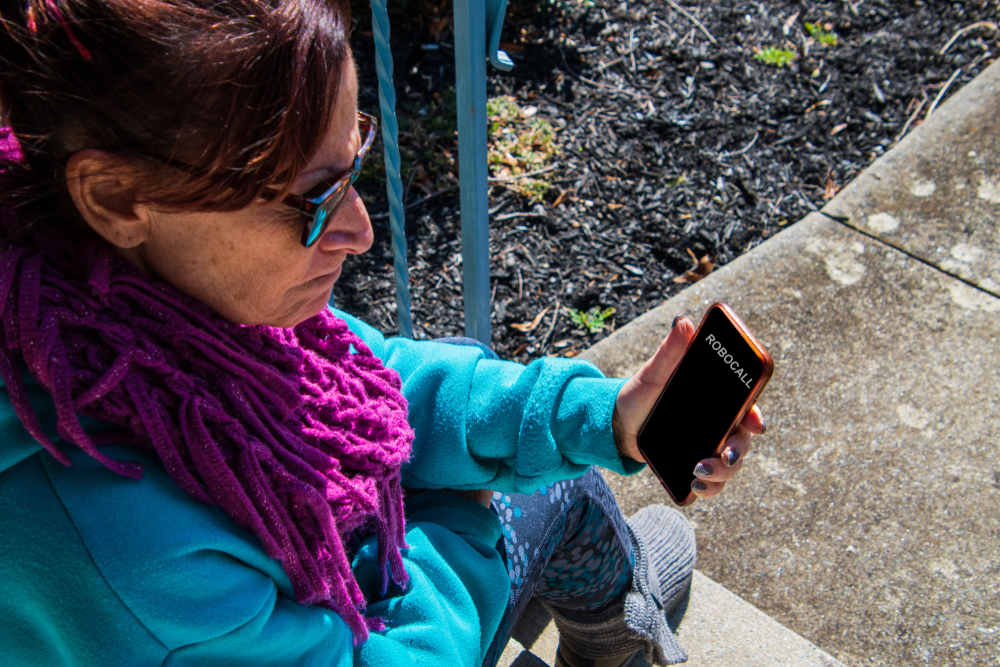Unwanted calls and spam texts don’t just waste time—they open the door to scams, identity theft, and relentless sales pressure. The good news: Florida residents have powerful tools under federal and state law to shut these calls down and, when appropriate, recover money. The guide below breaks the process into clear steps you can follow today.
If you need help pushing back, Abrams Justice Trial Attorney can apply the right mix of demand letters, agency complaints, and—if needed—lawsuits to stop illegal campaigns quickly.
Step 1 — Register and Announce Your “No-Sales-Calls” Status
Start by registering every personal line—mobile and home—on the National Do Not Call Registry. It’s free and takes minutes. You can submit your number at DoNotCall.gov or by calling 1-888-382-1222 from the line you want to register. The Registry doesn’t block calls by itself; instead, it tells legitimate telemarketers they must not call you for sales. Being on the list becomes a key fact if you later file a complaint or lawsuit.
Florida residents should also know about state-level enforcement resources. The Florida Department of Agriculture and Consumer Services and the Florida Attorney General accept complaints against telemarketing violations that keep happening despite your registration and opt-outs. Logging your complaint builds a public record and adds leverage if you retain a telemarketing lawyer in Florida to enforce your rights.
Once you’ve registered, tell any sales caller—live or prerecorded—“Put me on your internal Do Not Call list.” Make a note of the date, the number, and what was said. If the caller keeps dialing after that, the fact that you registered nationally and revoked interest strengthens a claim under the TCPA or FTSA. This is also the point where a robocall lawyer in Florida can prepare a preservation notice to the caller and its vendors, so consent records and dialing logs don’t “go missing.”
Step 2 — Save Logs, Screenshots, Audio, and “Consent” Pages
Evidence wins these cases. From now on, treat your phone like an evidence locker. Save call logs (date, time, caller ID), voicemails (especially those with an artificial or recorded voice), and full text threads that show the number, the message, and your replies. When a text campaign hits, export the conversation or capture sequential screenshots so dates and numbers are visible.
If you ever submitted your info to a quote-comparison site or sweepstakes, print that web page to PDF and save any confirmation email. Keep the language around checkboxes and disclosures—it matters. Create a simple folder system by caller or brand. File names like “2025-08-11_11-05am_Solar-Pitch_voicemail.m4a” make it easy to find things later. A master spreadsheet with columns for number, date, duration, presence of a recorded voice, and whether you requested internal Do Not Call keeps the entire story accessible at a glance.
If your carrier offers call-detail exports, ask your attorney about the cleanest way to obtain them so the chain of custody is tidy. The goal is to be able to show, without drama, what happened, when it happened, and how you told them to stop. Organized records give a TCPA damages lawyer in Florida leverage in negotiations and a clear path in court if a company refuses to change its behavior.
Step 3 — Revoke Consent in a Way You Can Prove
Even if you once agreed to messages, you can revoke consent. Text the sender “STOP” (or “UNSUBSCRIBE/CANCEL/END/QUIT/STOP ALL”) and screenshot your request along with any response. The FCC has made clear that consumers can revoke consent in any reasonable manner, and companies must honor it promptly. If the business tries to “clarify” your opt-out but you don’t respond, it must treat your STOP as applying to all texts. Continuing to text after you withdraw consent is fertile ground for a claim.
For phone calls, be direct: “Place this number on your Do Not Call list and do not call again.” Note the date and who you spoke with. If you get a prerecorded message, hang up after noting the time and save the voicemail. Prerecorded voice calls to cell phones without consent remain restricted under §227(b)(1), independent of the narrower autodialer definition clarified by the Supreme Court in Facebook v. Duguid (2021). That means you don’t have to win the “autodialer” debate to have a strong TCPA claim if the message was prerecorded.
Florida’s FTSA adds extra teeth. The 2023 amendments adjusted definitions and added procedures (including a pre-suit notice for some text claims), but they preserved core protections for consumers receiving unauthorized sales calls or automated texts. If messages keep coming after you say STOP, that timeline becomes a central exhibit in your demand letter or complaint. A Florida telemarketing act lawyer will capture those facts immediately.
Step 4 — Use Carrier Tools, Phone Filters, and Authentication
Turn on the tools that cut call volume. On iPhone and Android, enable silence unknown callers, move unknown senders into a separate SMS tab, and block persistently bad numbers. Consider a reputable call-blocking app that labels suspected spam and auto-blocks known high-risk sources. Take a quick screenshot of your settings; it shows you acted reasonably.
Carriers now use caller-ID authentication and network-level filters to deter spoofed numbers and to flag risky traffic. Opt in to any free spam-labeling or spam-blocking services your carrier offers. While no tool is perfect, combining device settings with carrier-level protections often reduces unwanted calls and texts dramatically.
Why it matters legally: if the intrusion continues despite your settings and your explicit revocations from Step 3, a TCPA lawyer in Florida can point to willful conduct and push for enhanced statutory damages. It also preserves your sanity while your attorney handles the heavy lifting.
Step 5 — Know Your Rights and the Current Rules of the Game
Two frameworks drive most Florida claims. First, the TCPA restricts autodialed calls and prerecorded/artificial-voice calls to cell phones without prior express consent (and imposes rules for residential lines). In Facebook v. Duguid, the Supreme Court narrowed the autodialer definition to systems that use a random or sequential number generator, but the opinion also emphasized that Congress separately banned prerecorded-voice calls regardless of dialing method. That distinction matters: even if a system isn’t an “autodialer,” prerecorded marketing to your cell phone without consent can still violate the TCPA.
Second, Florida’s FTSA (§501.059) targets telephonic sales calls and automated texts to Florida numbers with specific disclosures and consent standards. In 2023, the Legislature passed HB 761, which refined definitions, clarified when consumers can sue over text solicitations, and aimed to balance enforcement with guardrails against abusive filings. The Florida Bar Journal’s summary of the changes is a helpful plain-English reference, and the Senate bill summary explains the statute’s current contours. A TCPA lawyer in Florida will evaluate your facts under both schemes.
Meanwhile, the FCC’s December 2023 Order closed the “lead-generator loophole.” Sellers can no longer rely on a single generic web-form consent to justify calls or texts from multiple brands; consent must be one-to-one and brand-specific. The Commission has also pushed providers to proactively block unlawful robotexts. If your calls or texts trace back to a comparison site or sweepstakes page, this rule can be a game-changer.
Step 6 — Create Official Paper Trails That Help Your Case
If violations continue after Steps 1–4, file short, factual complaints with the FTC (National Do Not Call site) and the FCC. Include the calling number, the date and time, a one-line description of the pitch (“extended warranty,” “debt relief,” “solar”), and whether you previously said STOP or requested internal Do Not Call treatment. Upload supporting screenshots if the portal allows it. Keep your confirmation numbers in your evidence folder from Step 2.
Florida residents should also submit a simple state complaint when a brand refuses to stop. These filings help regulators spot patterns and support your later demand or lawsuit. You’re not writing a novel—just creating time-stamped corroboration that a campaign kept going after you withdrew permission.
This is often the point where outreach slows or stops. If it doesn’t, you have a clean, well-documented record that a top rated robocall lawyer in Florida can use to extract compliance and, where appropriate, compensation.
Step 7 — Send a Formal Demand and Preservation Notice
When calls or texts persist, your attorney will typically send a formal demand and a preservation notice. The demand sets out the violations, references your Do Not Call registration from Step 1, your revocation record from Step 3, and the brand-specific consent rule from Step 5. The preservation notice requires the sender (and often its vendors) to retain dialing logs, call recordings, vendor contracts, and any web-form consent artifacts.
Because many campaigns involve layers—lead seller → dialer/platform → brand—your lawyer may send this to multiple parties. That multi-front approach often ends the outreach quickly. Where Florida law requires pre-suit notice for certain text claims, your attorney will provide it precisely, preserving your right to sue while giving the sender a narrow chance to cure. A targeted letter from a TCPA damages lawyer in Florida frequently results in both a halt to messages and a serious settlement discussion.
Step 8 — File Suit (Individual or Class) to Stop the Calls and Seek Money
If informal efforts fail, litigation can stop the campaign and deliver compensation. Under the TCPA, consumers can pursue $500 per unlawful call or text, and up to $1,500 per violation if conduct is willful or knowing, along with court orders to prevent future contact. Florida’s FTSA also authorizes statutory damages and, in some circumstances, fee shifting—an additional incentive for defendants to resolve meritorious claims.
Your attorney will advance the strongest theories. If your mobile received prerecorded sales messages without consent, that claim often leads; you don’t need to prove an autodialer to prevail. If the sender insists it had permission from a web form, counsel compares the disclosure to the FCC’s one-to-one requirement from Step 5.
When the same practice targeted many Floridians—especially numbers on the Do Not Call list—a class action may be appropriate. Defendants sometimes raise arbitration clauses or class-action waivers tied to online terms; your attorney will test whether those provisions actually apply to the calls at issue and whether the company can prove assent.
The organized records you built in Step 2 shorten the path to resolution, whether across the negotiating table or in court.
Step 9 — What Working with Abrams Justice Looks Like
Illegal robocalls and spam texts are not a nuisance you have to accept; between the TCPA, the FTSA, the National Do Not Call Registry, and the FCC’s new one-to-one consent rule, Florida consumers have real leverage to stop the calls and seek money when businesses ignore the rules. Abrams Justice Trial Attorney uses those tools every day for Miami-Dade residents—documenting violations, sending demands, and filing a suit when necessary—so you can focus on work, family, and recovery. For a precise review of your calls and texts and a clear plan to end the harassment, contact us today.


